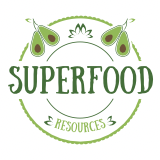Discover the complete guide to Moringa, a powerhouse of nutrition and wellness often dubbed the “miracle tree.” Revered for centuries, Moringa is gaining worldwide recognition for its wide array of health benefits and versatile uses. Whether you're looking to boost your nutritional intake, explore natural wellness solutions, or learn how to grow this incredible plant, this guide has everything you need. Let's dive into the world of Moringa and explore its wonders.
What is Moringa?
Moringa Oleifera, more commonly known as Moringa, is a fast-growing tree native to South Asia but also cultivated in various countries across Africa, Asia, and Latin America. Known as “drumstick tree,” “horseradish tree,” or “ben oil tree,” Moringa is celebrated for its nutritional and medicinal properties. The tree's parts—including its leaves, seeds, and pods—are edible and have been used in traditional medicine for centuries.
Historically, Moringa has been a staple in Ayurvedic medicine, reputed to treat over 300 ailments. Today, it’s recognized not only for its historical significance but also for its potential to address global malnutrition due to its high nutritional value. Its cultivation is prevalent in regions with warm climates, where the tree's resilience in drought-prone environments makes it an ideal crop.
Nutritional Profile of Moringa
Moringa is renowned for its astonishing nutritional density. It's packed with essential vitamins and minerals, boasting high concentrations of vitamins A, C, and E. This nutritional powerhouse also contains significant amounts of important minerals such as calcium, potassium, and iron. Additionally, it is an excellent source of protein, providing nine essential amino acids, a rarity among plant-based foods.
Aside from these, Moringa is loaded with antioxidants like quercetin and chlorogenic acid. These compounds contribute to reducing inflammation and neutralizing harmful free radicals in the body. Compared to other superfoods like kale and spinach, Moringa stands out due to its exceptional nutrient concentration, making it a valuable addition to any dietary regimen.
Health Benefits of Moringa
The health benefits of Moringa are extensive and well-documented. It is renowned for its role in boosting immune health, thanks to its rich vitamin and mineral content that helps in bolstering the body's natural defenses. Regular consumption of Moringa can enhance energy levels and improve overall vitality.
Moringa also supports digestion and aids in metabolism regulation. Its anti-inflammatory properties help soothe digestive ailments and improve gut health, making it beneficial for those with digestive disorders.
Moringa is a popular ingredient in skin and hair care, known for promoting skin rejuvenation and hair growth. Its abundance of antioxidants helps fight oxidative stress, thereby improving skin health and reducing signs of aging.
Emerging research also suggests that Moringa plays a potential role in managing chronic diseases like diabetes and hypertension. Studies have indicated that Moringa may help lower blood sugar levels and reduce cholesterol, contributing to cardiovascular health.
How to Use Moringa in Your Daily Routine
Moringa's versatility makes it easy to incorporate into your daily routine. Culinary uses of Moringa are diverse, and its leaves or powder can be added to smoothies, soups, and salads, enhancing both nutrition and flavor. You can explore Moringa recipes that cater to various tastes, from Moringa tea to energy-packed Moringa smoothies.
If you prefer supplements, Moringa is available in powdered, capsule, and tea forms. It's essential to purchase from reputable brands to ensure quality and purity. As with any supplement, it's crucial to adhere to recommended dosages. Generally, incorporating one to two teaspoons of Moringa powder into your diet is an effective way to enjoy its benefits without overconsumption.
Growing and Harvesting Moringa
For those with a green thumb, growing Moringa can be a rewarding endeavor. The tree thrives in warm climates and requires minimal care once established. Ideal for arid conditions, Moringa is drought-resistant and can flourish in well-drained sandy or loamy soil.
To plant Moringa seeds, choose a sunny location and prepare the soil by enriching it with organic matter. Space the seeds adequately to allow for robust growth. Regular watering is necessary during the initial growth stages, but the tree requires less water as it matures. Pruning ensures a healthy structure and encourages leaf growth, which are the most nutrient-rich parts.
Harvesting involves plucking the leaves, which can be used fresh or dried. Pods and seeds can also be gathered and utilized in a variety of ways, either for cooking or pressing to yield oil. Sustainable harvesting practices ensure the longevity of the tree and a continuous supply of its beneficial components.
Sustainability and Ethical Considerations
Beyond its health benefits, Moringa is a sustainable crop with a positive environmental impact. Its cultivation contributes to soil fertility and helps combat soil erosion, making it an ideal crop for regions with challenging growing conditions. The tree’s ability to grow in arid climates positions it as a vital resource in combating food security challenges in vulnerable regions.
Supporting fair trade and ethical sourcing helps communities that rely on Moringa cultivation. By purchasing Moringa products that are certified fair trade or support small-scale farmers, consumers can contribute to economic empowerment and sustainable agricultural practices.
Conclusion
Moringa stands out as one of the most versatile and beneficial plants available today. From enhancing your diet with its rich nutritional profile to exploring its sustainable cultivation, Moringa offers endless possibilities for those seeking natural wellness solutions. Start incorporating Moringa into your lifestyle today, and experience the multitude of benefits this miracle tree has to offer. Be sure to source your Moringa products ethically to support sustainable practices and contribute to global food security. Ready to learn more or share your own experiences with Moringa? Leave a comment or explore our recommended products.










